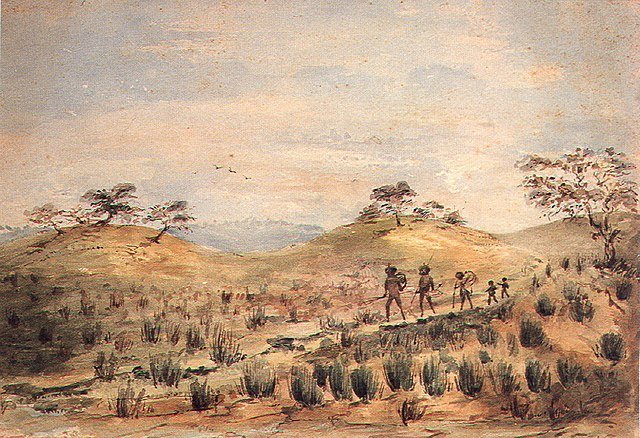Exploring the Historical Traditions of Adelaide and Their Origins
7 months ago

Adelaide, the capital city of South Australia, boasts a rich tapestry of historical traditions that have been woven together over hundreds of years. From its founding days in 1836 to the present, these traditions reflect the cultural, social, and economic development of the city and its inhabitants. The traditions encompass a variety of facets, including art, food, festivals, and community engagement, each with unique implications for the identity of Adelaide and its people. As we delve into the historical traditions of Adelaide, we discover the stories and legacies that shape this vibrant city.
Understanding the historical traditions of Adelaide requires us to examine how these practices have evolved over time and their significance in contemporary society. The interaction between Indigenous cultures and European settlers, along with the influence of migration waves throughout the 19th and 20th centuries, has produced a unique blend of traditions that celebrate both the city’s heritage and its ongoing development. This article endeavors to showcase these traditions in depth, highlighting their importance to the city and its diverse inhabitants.
- The Early Settlement Traditions of Adelaide
- Festivals and Celebrations Through the Ages
- Food Traditions and Culinary Influences
- Artistic Expressions and Cultural Heritage
- Community Engagement and Social Practices
- The Influence of Sporting Traditions
- The Evolving Nature of Historical Traditions
- Conclusion
The Early Settlement Traditions of Adelaide
The Founding of Adelaide
The historical traditions of Adelaide can be traced back to its foundation in 1836 by Colonel William Light, making it one of the few planned cities in Australia. Light’s vision for the city was guided by principles of democracy and urban development, allowing for the establishment of what would become a hub for immigrants from England, Ireland, and Germany. The recognition of Adelaide as a free settlement without convicts differentiated it from other Australian colonies, paving the way for a culture centered around individual freedoms and rights. Early settlers brought their own customs, blending these with the local practices of the Kaurna people, the traditional custodians of the land.
The Integration of Indigenous Traditions
The Indigenous traditions of the Kaurna people, including their connection to the land, use of native flora and fauna, and oral storytelling, have indirectly influenced Adelaide’s cultural landscape. The practice of gathering for communal meetings, known as 'Tappa', exemplifies the importance of community in traditional Kaurna culture. This tradition highlights how interpersonal relationships were essential to sharing resources, information, and spiritual beliefs. Currently, efforts to recognize and honor these traditions continue, with initiatives aimed at weaving Indigenous narratives into the broader historical context of Adelaide.
Festivals and Celebrations Through the Ages
The Adelaide Festival
One of the most significant historical traditions to emerge in Adelaide is the Adelaide Festival, which first took place in 1960. Designed as an arts festival that embraces theatre, music, and visual arts, the Adelaide Festival has evolved into a prominent event celebrated both nationally and internationally. This annual tradition enables artists, performers, and audiences to gather, fostering an appreciation for creative expression that reflects Adelaide's innovative spirit.
WOMADelaide and Its Cultural Significance
Another notable historical tradition is WOMADelaide, a world music and dance festival inaugurated in 1992. This event brings together diverse artists from around the globe, showcasing cultural traditions through performances, workshops, and food stalls. By promoting an understanding of various cultural backgrounds, WOMADelaide serves as a testament to Adelaide's commitment to celebrating multiculturalism. The festival highlights the city's evolution into a melting pot of cultures, where various traditions coexist and enrich the Adelaide community.
Food Traditions and Culinary Influences
The Significance of Local Produce
The diverse historical traditions of Adelaide also extend to its culinary practices, where the emphasis on local produce shines brightly. The fertile lands surrounding Adelaide have allowed for agriculture to flourish, resulting in a culinary scene that emphasizes sustainability and seasonal ingredients. Farmers' markets, such as the Adelaide Central Market, have become integral to the fabric of the community, promoting a connection between the producer and the consumer while underscoring the value of heritage food practices.
Influence of Immigrant Cultures
As waves of immigrants settled in Adelaide, they brought with them their own culinary traditions, which have significantly shaped the local food landscape. From Italian pasta dishes to Vietnamese pho, each group has contributed to a vibrant culinary diversity that reflects the historical narratives of migration. Food festivals, such as the Tasting Australia Festival, allow these various cultures to showcase their cuisines while promoting the idea that food transcends cultural barriers. As such, the food scene in Adelaide stands as a celebration of the city's historical traditions influencing contemporary dining experiences.
Artistic Expressions and Cultural Heritage
The Artistic Legacy of Adelaide
Adelaide's historical traditions are also vividly expressed through its arts scene, which is enriched by both local talent and international influences. The city has long been home to established artists, musicians, and writers, who have utilized their crafts to reflect local issues, historical narratives, and cultural shifts. Emerging initiatives such as the Adelaide Biennial of Australian Art showcase contemporary art in dialogue with Adelaide's historical context, providing insights into the evolution of artistic expression within the city.
The Role of Public Art in Adelaide
Public art has become an essential aspect of Adelaide's urban landscape, contributing to its historical traditions while also serving as a canvas for social commentary. Murals, installations, and sculptures found throughout the city not only beautify public spaces but also invite passersby to engage with the stories they tell. For instance, the city's commitment to integrating historically significant events and figures into public art pieces reflects an ongoing dialogue between the past and present, reinforcing Adelaide's identity as a city deeply rooted in history.
The Tradition of Volunteering in Adelaide
One of the most admirable historical traditions of Adelaide is the commitment to community service and volunteering. From the early settlement days, individuals banded together to create support networks that assisted newcomers and those in need. This spirit of giving back has manifested in various forms, including community gardens, charity events, and social enterprises. The strong culture of volunteering has helped instill a sense of belonging among residents, further reinforcing the notion that community welfare is a collective responsibility.
Preservation of Local Heritage
Preserving Adelaide’s historical traditions has also led to a concerted effort to maintain historical sites and buildings that narrate the city’s story. Organizations dedicated to heritage conservation work tirelessly to safeguard architectural legacies, such as the Old Adelaide Gaol and the South Australian Museum. These efforts ensure that current and future generations can appreciate the rich history embedded in the city’s landscape. The promotion of heritage walks and educational programs allows residents and visitors alike to explore Adelaide's past, deepening their understanding of its traditions and significance.
The Influence of Sporting Traditions
Sporting Events as Community Gatherings
Sporting events represent another facet of Adelaide’s historical traditions that fosters community spirit and engagement. The city is home to numerous sporting clubs that have long-standing histories, serving as vital social hubs for residents. Events such as the Adelaide 500 motor race and the AFL matches featuring the Adelaide Crows and Port Adelaide Power draw large crowds, uniting fans each season. Sport brings people together, creating an atmosphere of excitement and camaraderie as individuals celebrate their teams and nurture connections with fellow supporters.
The Role of Sportsmanship in Cultural Identity
The emphasis on sportsmanship in Adelaide has also played a pivotal role in shaping the city’s cultural identity. The tradition of fair play and respect for opponents extends beyond the playing field, influencing interpersonal relationships within the community. Schools and clubs promote values such as teamwork, perseverance, and inclusiveness, serving to cultivate a strong sense of belonging. The nurturing of these values contributes to the overall cohesiveness of Adelaide's community, fostering an environment where individuals can cultivate relationships while embracing the city's historical traditions.
The Evolving Nature of Historical Traditions
Adaptation in Modern Contexts
As Adelaide continues to grow and adapt, its historical traditions also evolve in response to changing social, cultural, and technological landscapes. While many of these traditions remain firmly rooted in the past, there is an active engagement with modernity that prompts reinterpretation and creative expressions of historical practices. This adaptability not only keeps traditions relevant but also invites participation from younger generations, ensuring the continuity of cultural practices.
The Future of Adelaide’s Historical Traditions
Looking forward, the future of Adelaide’s historical traditions holds the promise of further integration and collaboration between cultural groups as the city embraces its growing diversity. Initiatives that promote intercultural exchanges and dialogue foster a sense of shared identity, where individuals can come together to celebrate the richness of their traditions. Engaging younger residents in these discussions cultivates ownership and pride in their heritage, ultimately helping to shape a dynamic narrative for Adelaide that honors its historical roots while embracing new possibilities.
Conclusion
The historical traditions of Adelaide are not merely remnants of the past; they are living practices that continue to evolve and influence the city’s identity. From early settlement customs to contemporary arts and community engagement, these traditions illustrate the unique richness of Adelaide’s cultural landscape. As residents and visitors alike engage with the city’s history, they contribute to a vibrant tapestry that reflects diverse perspectives and experiences. Ultimately, the enduring nature of these traditions serves as a reminder that history is not a static entity but a dynamic force that shapes and is shaped by the people who inhabit it. Through celebration, preservation, and adaptation, Adelaide ensures that its historical traditions remain a poignant part of its identity for generations to come.

Leave a Reply